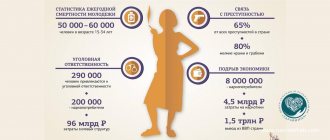Reclassification of a case is a change from one crime to another, implying either a more lenient or more severe punishment. Retraining can be carried out by the investigator, and during the trial - by the prosecutor, the accused and his lawyer.
If you find yourself accused, then changing the classification of the crime is your chance to reduce your sentence. A motivated argument on why your crime needs to be reclassified is best prepared by a lawyer who has extensive experience in filing petitions for reclassification of crimes.
In order to find a specialist in the field of criminal law who is right for you, just go to the R.TIGER website and leave a request. Our service has an honest rating system based on customer ratings and reviews. The rating cannot be increased for any contribution! In addition, by choosing our service, you:
- Save time on searching, as you will find many already verified companies in one place.
- When creating an application, you indicate the budget yourself, and those who are ready to help for the money respond to the application.
You will also have a guarantee of results - the contractor will receive the money only after you confirm that the order has been completed.
Do you want to figure it out, but don’t have time to read the article? Lawyers will help
Entrust the task to professionals. Lawyers will complete the order at the cost you specify
25 lawyers on RTIGER.com can help with this issue
Solve the issue >
What is the difference between selling drugs and facilitating drug trafficking?
Of course, an experienced drug dealer will always want to disguise himself as an innocent lamb who is holding drugs in his hands for the first time. But it was not there. The resolution of the Plenum of the Supreme Court of the Russian Federation dated June 15, 2006 No. 14 clearly defines that complicity is the transfer of narcotic drugs to another person without commercial purposes. In most cases, it involves purchasing drugs for another person.
An accomplice must be distinguished from a co-perpetrator of a crime. In addition, there are:
- Assisting in the sale is a crime in which a citizen:
- does not take direct part in this act;
- assists the performer or co-executor;
- knows reliably about the criminal intentions of the performer (co-performer) and helps in their implementation.
- Assistance in purchasing:
- the intent of the crime may be absent;
- providing only one-time assistance in purchasing drugs;
- the purchase is made with the money of another person;
- it is possible to receive remuneration from the person to whom the drugs are purchased;
- The motives for mediation can be close family or friendly relations with a person, actions out of a mistaken sense of mutual assistance or duty.
All these grounds are taken into account by the court when a decision is made to reclassify sales as aiding. However, you need to understand that drug cartel members who are not directly involved in the sale of the “product” are recognized not as accomplices, but as co-performers, if their task was to support the activities of this organization.
Test purchase of drugs
Article 228.1 of the Criminal Code of the Russian Federation, the illegal distribution of drugs and psychotropic substances can be compared in severity to the murder of a person. And the punishment under the 4th and 5th parts of Article 228.1 of the Criminal Code of the Russian Federation ranges from 10 years in prison (more than for murder). And the state is further tightening penalties for drug sales. For example, the Supreme Court made a decision of the plenum that the sale of drugs is considered completed during the operational investigative activities “Test purchase”. That is, all over the world this is called provocation of a crime by the police. And here we consider this to be a completed drug trafficking operation. Of course, why investigate, why carry out operational activities, find out, look for distributors, they are difficult to find, there is a lot of work, so ordinary drug addicts or just occasionally using citizens under the beautiful name “Test purchase of drugs” are turned into distributors. To us, as drug lawyers, this situation seems so critical that we do not have words to describe all the violations that police officers, especially operatives of local departments, commit, complete lack of human rights, innocent people are accused of selling drugs. How many mothers, fathers of wives, are in a state that cannot be expressed in words when their loved one is accused of selling drugs. This is hell!
As a rule, traffickers, real traffickers-dealers, do not hand over the drug and do not take money from hand to hand. everything is done through an electronic payment system, via the Internet, cash, real drug sellers do not take drugs, and the drug itself is transferred by intermediaries through a system of hiding places and stashes on the street. They leave the drug somewhere on the street and tell the buyer where the drug is. It is difficult to find real sellers and intermediaries and solve drug crimes, so our police organize an operational investigative event called “Test Purchase”; the purchasers, as a rule, are people who know each other well and, as a rule, use drugs together and naturally trust each other . They catch such a drug addict and say: take part in the purchase or go to prison yourself. Like that!
What to do if you are accused of selling drugs during a test purchase?
There is only one legal way out here: to achieve a reclassification from drug sales to assistance in the acquisition. There is no other way out here! Selling drugs is such a serious crime that you have to get away from it by any means.
Liability provided
Sale of narcotic drugs is a serious crime for which criminal liability is brought. Article 228 of the Criminal Code of the Russian Federation contains instructions on how to punish attackers. But, of course, the final verdict is made by the judiciary.
What is the penalty for participating in the sale of narcotic drugs?
- The act was committed on a significant scale - a fine of up to 40,000 rubles, or compulsory labor for a period of up to 480 hours, or correctional labor for up to two years, or restriction of freedom for up to 3 years, or imprisonment for up to three years.
- The crime was committed on a large scale - imprisonment for up to 10 years with a fine of up to 500,000 rubles.
- An action committed on an especially large scale is punishable by imprisonment for up to 15 years with a fine of up to 500,000 rubles.
As you can understand, the punishment is severe, so participation in a criminal scheme can be considered an unwise decision. At best, the person will get away with a fine. However, if the court recognizes that the actions were committed on a large or especially large scale, then there will be no lenient sentence.
Bibliography
- Tokmantsev D.V. The state of drug crime in the countries of the Customs Union: Belarus, Kazakhstan and Russia // Bulletin of the Siberian Legal Institute of the Federal Drug Control Service of Russia. 2014. No. 3. P. 39.
- Tokmantsev D.V. Algorithm for Qualifying Drug Crimes // Bulletin of the Siberian Legal Institute of the Federal Drug Control Service of Russia. 2015. No. 1.
- Telnov, P.F. Responsibility for complicity in a crime // M.: Legal literature, 1974. - 208 p.
- Kovalev M.I. Complicity in crime. //- Ekaterinburg: Publishing house of UrGUA, 1999. - 204 p.
- Shesler A.V. Prospects for improving criminal law norms on complicity in a crime // Lex russica. 2015. N 6
- Assisting in the acquisition of narcotic drugs, article of the Criminal Code [Electronic resource] – Access mode: https://law-uradres.ru/posobnichestvo-v-priobretenii-nark-sredstv-statya-uk (access date 06/23/2018)
- Tokmantsev D.V., Vinokurov V.N. New rules for qualifying the illegal acquisition and illegal sale of narcotic drugs // Criminal law. 2021. No. 1.
- Verdict No. 1-20/2016 1-422/2015 of February 12, 2021 in case No. 1-20/2016 // Website judicial and regulatory acts [Electronic resource] – Access mode: https://sudact.ru/regular /doc/FCywtCDiAIWl (accessed June 17, 2018)
Is it possible to avoid punishment
The Criminal Code describes a situation where a person can avoid criminal liability. This is possible if a citizen voluntarily surrenders drugs and admits to his crime. However, if this happens during arrest, then the accomplice will still be held accountable.
You can also avoid punishment if a person was misled and did not know that he was helping to purchase an illegal product. That is, he had no idea that he was committing criminal acts. However, such a fact will be quite difficult to prove, because the accomplices may deliberately say that they did not know anything. We can only advise not to participate in illegal schemes, even if you only want to help a loved one.
Signs of participation and complicity
Crimes committed by a criminal group, as a rule, are investigated especially carefully and the responsibility for such criminal acts is assigned significantly more serious, since crimes in this category are considered especially dangerous to society. This attitude is determined by the fact that a group of several citizens participates in a criminal act and the damage is much greater than when the criminal acts alone.
There are a huge number of theoretical studies devoted to planning and complicity in criminal acts. In order not to get confused during the investigation, it is necessary to take into account both objective signs of a crime and subjective ones. Objective signs are acts in which:
- Illegal acts are committed only by a large number of persons, for example, a rally or rebellion (Article 279, Article 212 of the Criminal Code of Russia).
- The crime is planned jointly; for example, a situation cannot be ruled out when two criminals can rob a warehouse at the same time. In this case, liability can be of two types: under Article 158, when each criminal robbed, regardless of the other; under Article 35, when the robbery is carried out by two or more persons acting in concert.
- A common goal and result for two or more criminals, for example, an organized criminal group planned and set out to rob a store with the goal of selling the loot and dividing the proceeds between the participants in the robbery.
The signs of acts in which:
- The participants in a particular criminal act know each other. For example, the collector let a friend know where and when the collection would take place. His friend, using the information, carried out the robbery with his friends.
- There is no commonality of the final result, that is, when participants have different motives for committing a crime. For example, a businessman ordered a criminal to kill a competitor, and the killer, having agreed to fulfill the order, wants to rob his competitor after completing the order.
A person who does not even have the intent and desire to help commit a crime can become an accomplice. For example, when a security guard got scared and, instead of preventing a robbery, simply hid. In such a situation, his inaction can be considered complicity because, not wanting to receive bodily harm, he deliberately did not intervene.
A similar situation often occurs in terms of the performance of official duties by the director, his deputy or the chief accountant. Deceiving your employees, concealing profits, and evading tax payments can fall into the category of illegal acts such as complicity and aiding and lead to criminal prosecution.
Despite the fact that “ignorance is no excuse”, ignorance that a criminal act is being committed and the absence of deliberate intent can become a factor that exempts from liability. The participation of a lawyer in a criminal case will help to understand each specific situation and resolve the case in favor of the client.
Types of complicity
The current Criminal Code of the Russian Federation states that a person who knowingly took part in the commission of a criminal act or violated the law during its commission is recognized as an accomplice. If it is proven that a citizen acted intentionally and was involved in a crime in one form or another, he will be held accountable as an accomplice along with other citizens who participated in it.
In current legislation, participants and accomplices are usually divided into categories:
- The perpetrator is a citizen who has committed a criminal act, as a rule, without anyone’s assistance or assistance, whose guilt has been fully proven by law enforcement agencies and confirmed by the court.
- Co-perpetrators are citizens who have equal responsibility for the criminal act committed. For example, two citizens deliberately organized a criminal group to commit robbery or murder.
- An organizer is a person who has formed an organized crime group from a large number of citizens. For the organizer, a more severe punishment is usually provided due to the fact that he authoritarianly suppresses the remaining members of the organized crime group and is the ideological inspirer.
- An instigator is a citizen who is being prosecuted in accordance with the Criminal Code of the Russian Federation for inciting another person or group of persons to commit bodily violence or murder. For example, an instigator uses threats to force someone to commit a criminal act. According to Article 34 of the Russian Criminal Code, responsibility for such an act occurs even when the crime is not completed for some reason.
- An accomplice is a citizen who assists another person or an organized crime group in committing a criminal act. Even advice or disclosure of professional secrets can be considered assistance. For example, the collector informed a third party about the time of collection, who, after receiving it, committed an armed robbery, or the owner of a thrift store resells stolen items instead of contacting law enforcement agencies.
The guilt of each of the persons who committed a criminal act is determined by the degree of participation of each of them. One of the factors determining the degree of guilt is the testimony of each participant in the criminal act. It often happens that the organizer is one of the co-principals in court proceedings, while a simple accomplice is presented as almost the leader of a criminal group. The practice of shifting responsibility to a simple accomplice is quite common, since it allows the leader to avoid the maximum punishment. This scenario can be avoided by the lack of evidence or a plea bargain. The participation of a lawyer in a criminal case will help to avoid such consequences for the client.
Determining the degree of responsibility largely depends on witnesses or citizens detained as accomplices. Regardless of whether a citizen gave advice or disclosed professional secrets, intentionally or out of ignorance, criminal prosecution may be initiated against him because the accusation was formulated incorrectly.
To prevent this from happening during and after detention, which often ends with the signing of an act of recognition, one should exercise the right established by Article 52 of the Constitution, that is, not to testify against oneself and one’s relatives. In addition, the participation of a lawyer in a criminal case will help you choose the right course of action and avoid possible negative consequences.
Qualifying features
The severity of the sentence depends on the qualifying characteristics, so it is important to determine them. First of all, law enforcement agencies pay attention to the size of the crime. It can be significant, large and especially large. Naturally, in the latter case, a more severe punishment awaits.
Also, the sentence may be made more severe by the fact that the crime was committed by a group of persons in conspiracy or by an organized group. It is taken into account whether the citizen used his official position to commit an illegal act. Also, the punishment becomes more severe in a situation where an adult helps a minor purchase drugs.
In court, other details relevant to the case will be taken into account. They will pay attention to the motives for which the citizen committed the criminal act. It is also important to determine how many times he was involved in the acquisition of illegal goods. Let us note that an attempt, that is, a crime not completed, will also be punished. We will consider what an accomplice may face for illegal actions.








